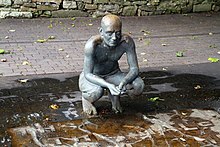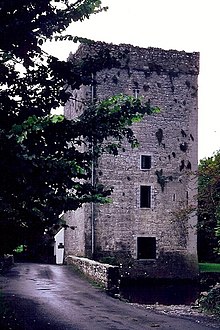W. B. Yeats
![]()
This article is about an Irish poet; for the ship, see W. B. Yeats (ship).
William Butler Yeats [jeɪts] (* 13 June 1865 in Sandymount, County Dublin; † 28 January 1939 in Menton, France) was an Irish poet. He is considered one of the most important English-language writers of the 20th century. In 1923 he became the first Irishman to receive the Nobel Prize in Literature. He was the brother of the artist and author Jack Butler Yeats and the father of the politician Michael Yeats.
William Butler Yeats was a promoter of the Irish Renaissance and at times joined a revolutionary movement. In 1899 he founded the Irish Literary Theatre together with Lady Gregory and Edward Martyn. This project gave rise to the Abbey Theatre, the Irish national theatre, in 1904. Yeats was a senator for two terms some time later.
As a writer, Yeats was influenced by ancient Irish models, Celtic mythology, and traditional English poets such as Blake, Shakespeare, and Shelley. He created a "national-Irish, mythical-mystical, often symbolic poetry". His early poems can be classified as English or Irish Romanticism. In the age of modernism, Yeats increasingly wrote several modern poems as well, which mark his outstanding late work. In part, it is said that he wrote his greatest literary works only after receiving the Nobel Prize.
Yeats's influence as an artist who struggled throughout his life to find the appropriate aesthetic expression for a "world thoroughly out of joint" extends far beyond Irish literature. In his works he shows an "astonishing capacity for change and increase", which makes him the "par excellence representative poet between 1890 and 1940". Along with the novelist James Joyce, Yeats is often considered the greatest Irish literary figure of the era.

Yeats memorial in Drumcliff

Thoor Ballylee - 12 Years of Yeats' Flat
Search within the encyclopedia
